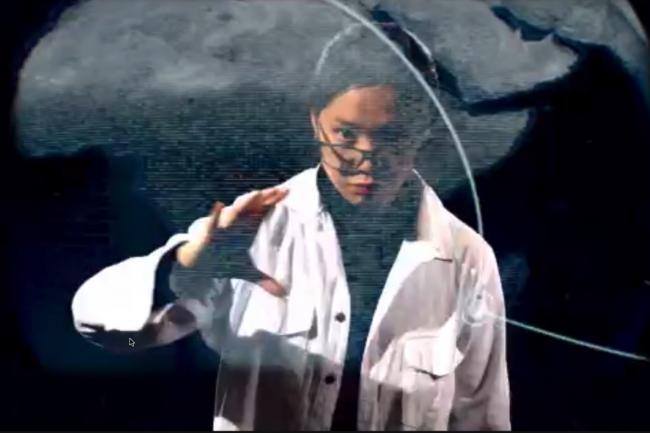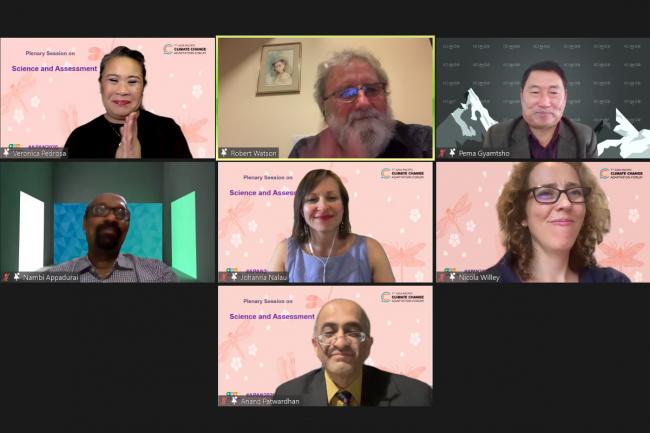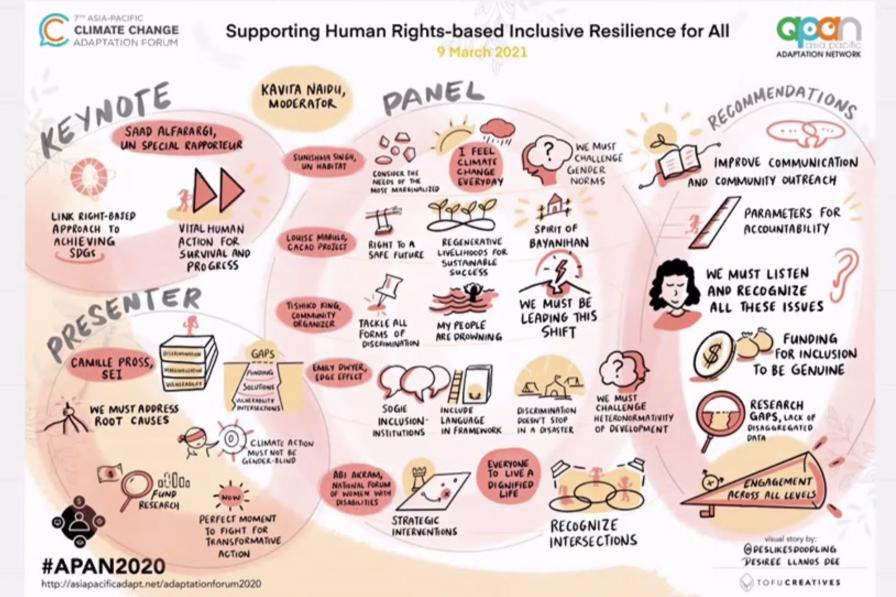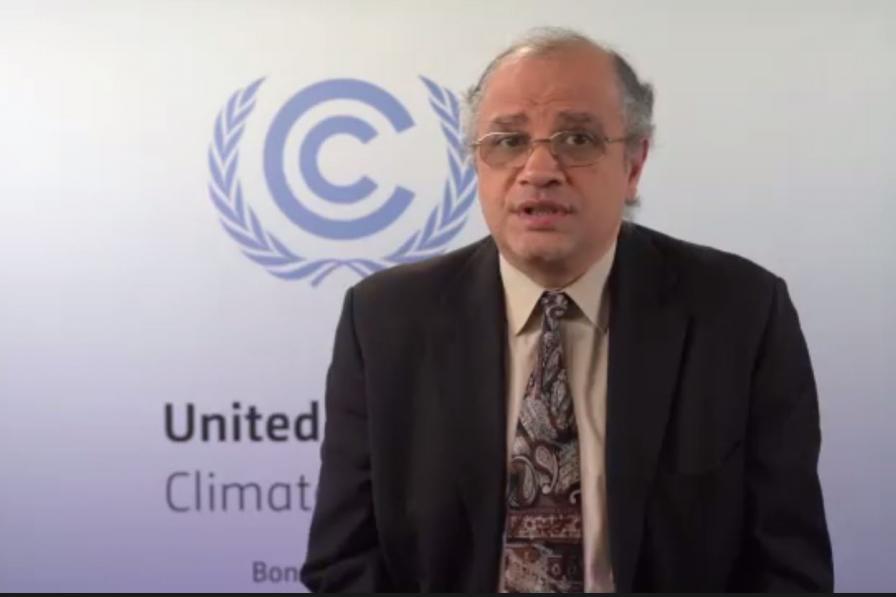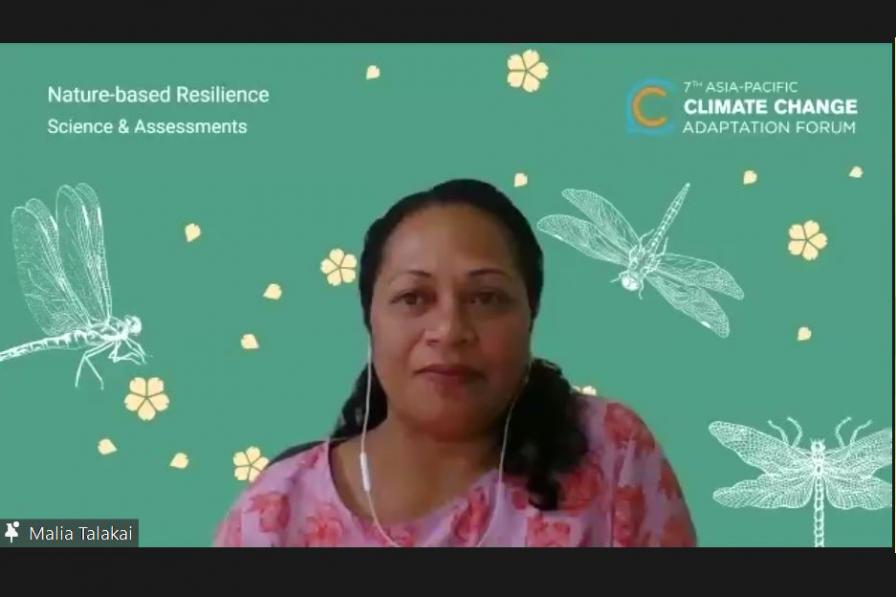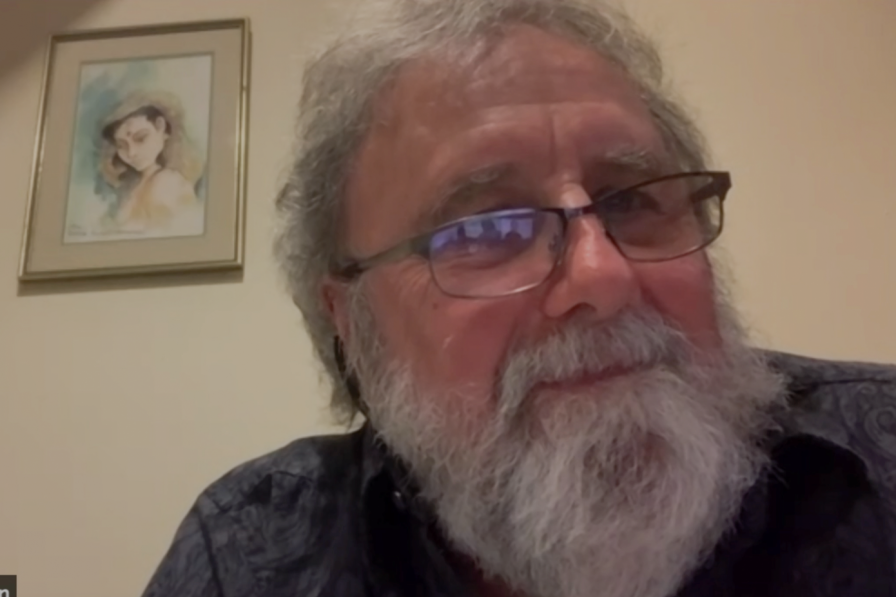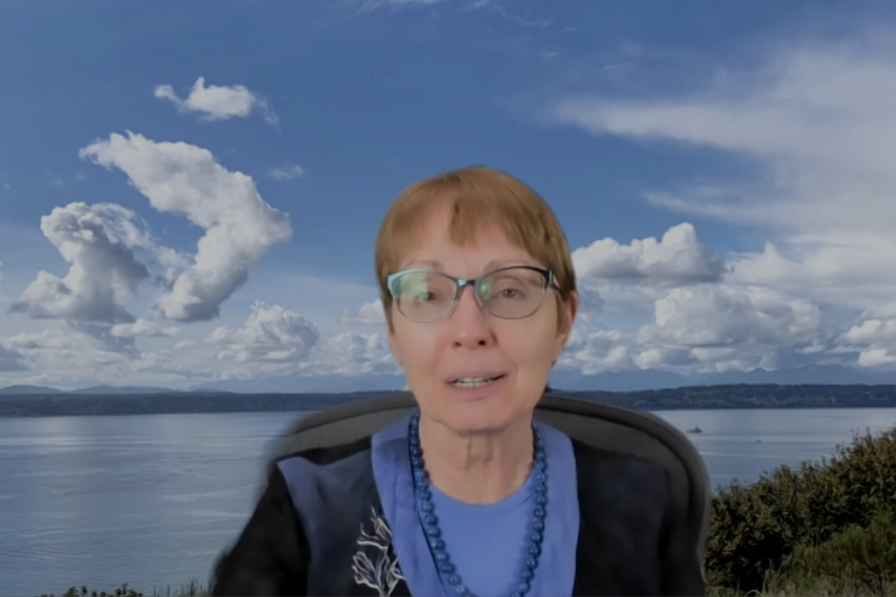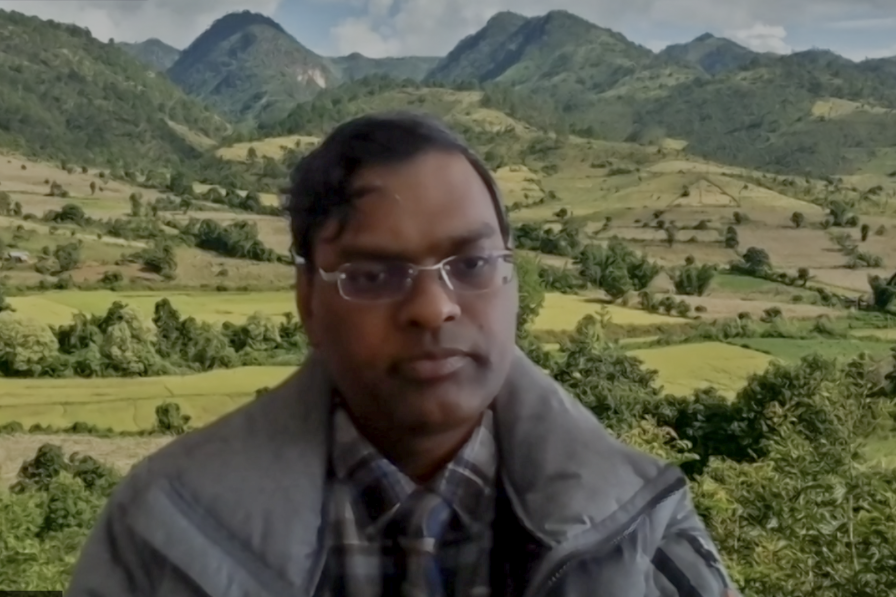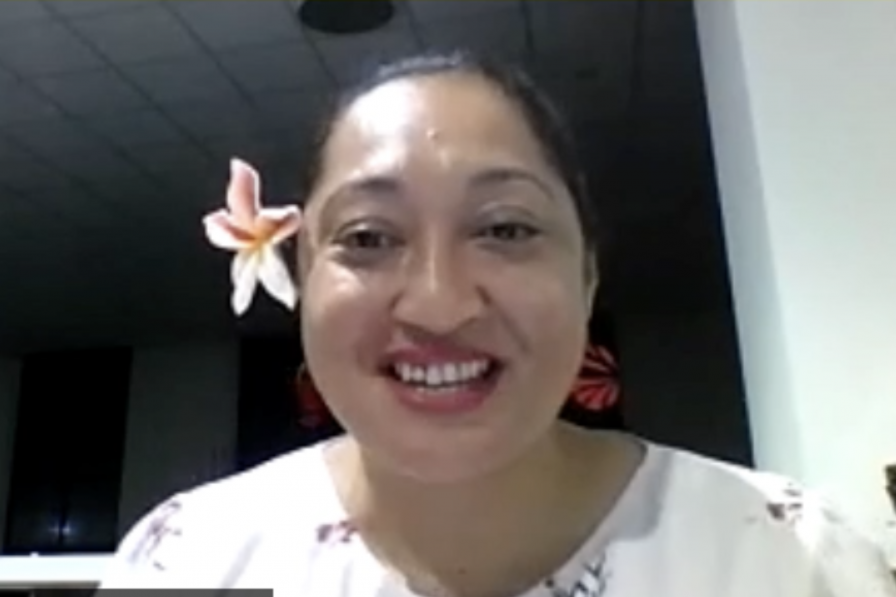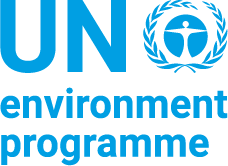Before the opening of the third day of the 7th Asia-Pacific Climate Change Adaptation Forum, the Ministry of the Environment of Japan and the Global Adaptation Network (GAN) held a session to present the achievements of GAN, a platform for regional adaptation knowledge sharing.
Mozaharul Alam, Head, Asia Pacific Adaptation Network (APAN) Secretariat, and Regional Coordinator, Climate Change Programme, UN Environment Programme (UNEP), then officially welcomed participants to the third day of the Forum. Desiree Llanos Dee, Co-Founder of Tofu Creatives, presented highlights from the second day of the Forum, through an artistic performance.
Participants joined a plenary session on “Science and Assessment,” followed by parallel sessions on “Enhancing resilience across borders: Using science to call for regional action in the HinduKush Himalaya” and “Closing adaptation knowledge gaps to scale up nature-based action in the Asia-Pacific region.”
After the lunch break, participants attended two more parallel sessions on “Status and challenges for linking scientific knowledge to strengthening socio-economic resilience to climate-related disasters” and “Toward Locally Led Adaptation: Fusion of Local and Scientific Knowledge and the Role of Universities in Strengthening Community Resilience.”
Key messages from these sessions include:
- User centric approach to science and assessment is essential;
- Scientific information should be presented in a way that vulnerable communities can use and understand ;
- Greater collaborative and meaningful partnerships to advance adaptation actions and approaches are key;
- Context-specific knowledge for target users is critical in informing national action plans;
- Traditional knowledge is key to adaptation action;
- The larger society should be part of the conversations on nature-based solutions;
- Better understanding and management of transboundary risks are necessary; and
- Universities should be involved in adaptation actions to ensure sustainability.
In the evening, participants chose between an Origami night and a side event on “Partnerships to harmonize science information and knowledge at regional scales for enabling adaptation.”
